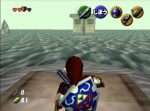A lot of what we suspected about the Wii U behind the scenes has been confirmed by an anonymous developer. Eurogamer ran an excellent insider insight piece that peels back the layers at Nintendo. Particularly how confusing the Wii U’s development process was and how third party studios are treated. For the first time, we get to see exactly why their newest console isn’t doing so well. From rushed hardware, language barriers, and a big day one patch that added last minute features.
You’d expect there would be a few headaches developing games for a new system. However, Nintendo seems to be operating on their own island.
The unnamed developer noted quite a few red flags when the company first discussed the Wii U with third parties. They wanted to build a system that was both small and quiet, something “mum wouldn’t mind” in her living room. Without noisy fans, the system would have limited cooling, which meant underpowered hardware. The Wii U would be something closer to the Xbox 360, rather than the Xbox One.
Adding to performance problems, coding issues plagued the system early on. Old PowerPC engines optimized to for the 360 and PS3 didn’t always translate over well. Unusually long compiling and debugging times extended development.
Getting technical support form the hardware team also posed major challenges. They could only speak Japanese, so any inquiries had to be sent out for translation. It would take at least a week to get a response, further delaying work on the games.
The Wii U also underwent numerous hardware revisions over the entire development process. Even Nintendo’s own staff were having difficulties. Especially since this was the first time they had developed games in HD.
Online connectivity wasn’t even finalized until shortly before the Wii U’s launch. This was the reason for the massive day-one patch. Nintendo told developers they had not even looked at what Sony and Microsoft were doing, which set off alarm bells.
It’s a long but definitely interesting read. Especially if you want to get some insight into how Nintendo works and how difficult it can be making games for new systems. Hopefully the Wii U eventually gains some traction. Fresh IPs would certainly help. Though the PlayStation 4 has already matched its lifetime sales in just two months, despite costing $100 more. Nintendo has a lot of work to do.



